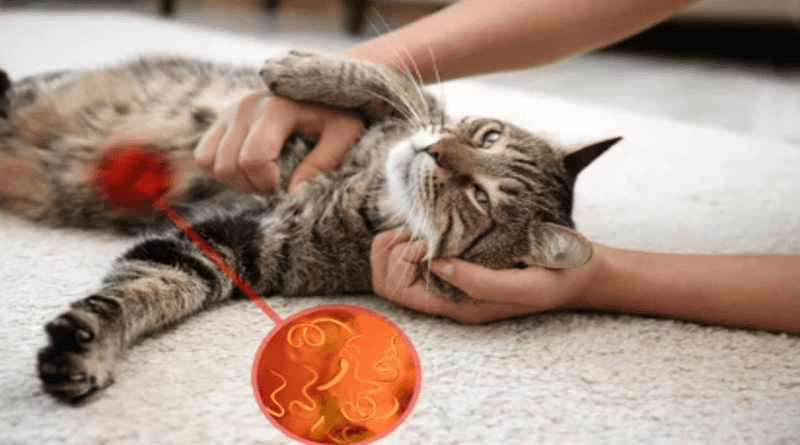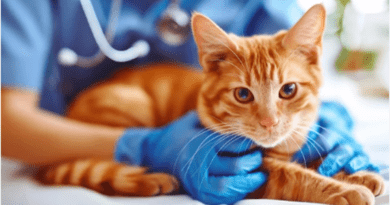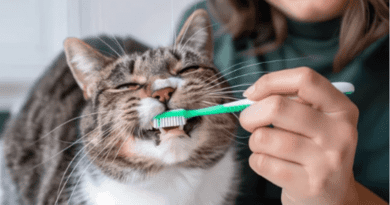Parasite Control for Cats
Flea, tick, and parasite infestations affect cats globally, leading to discomfort and health complications. Understanding how these pests operate and how to protect your cat from them can ensure long-term well-being. Fleas and ticks, external parasites, cause itching, skin irritation, and can transmit diseases. Internal parasites, such as worms, lead to digestive problems, weight loss, and other health issues. To keep your cat safe, adopting a comprehensive prevention plan remains crucial.
Fleas and Flea Control
Fleas, small wingless insects, latch onto your cat’s skin to feed on blood. They reproduce rapidly, causing large infestations in homes. Once fleas begin to breed, controlling them becomes difficult because their eggs fall off the cat and scatter throughout your home. Flea larvae then develop in carpets, bedding, and cracks, making your environment a hotbed for fleas.
Cats infested with fleas scratch excessively, develop scabs, and can suffer from hair loss due to allergic reactions to flea saliva. Moreover, fleas can transmit tapeworms and other diseases, further complicating the situation.
To prevent fleas, you should use vet-approved flea preventatives such as topical solutions, oral medications, or flea collars. These products kill adult fleas and break their reproductive cycle. Regular grooming and cleaning also help reduce the flea population in your cat’s environment. Vacuum your home thoroughly, wash your cat’s bedding, and treat carpets and furniture with flea sprays or powders when necessary.
Ticks and Tick Control
Ticks, another external parasite, attach to your cat’s skin to feed on blood, potentially transmitting diseases like Lyme disease, cytauxzoonosis, and ehrlichiosis. Although ticks affect cats less often than fleas, they remain a significant threat, especially in outdoor environments where tick populations thrive.
Once a tick attaches, it can remain on your cat for days, causing irritation and possibly infection. Checking your cat regularly, especially after outdoor activities, reduces the risk of tick attachment. If you find a tick, remove it with tweezers by grasping it close to the skin and pulling it out steadily without twisting. Follow this up by disinfecting the area.
Tick preventatives, including spot-on treatments and tick collars, protect your cat by repelling ticks before they can bite. Keep your outdoor areas trimmed and free of debris to discourage tick habitats.
Internal Parasites and Their Control
Internal parasites such as roundworms, tapeworms, hookworms, and heartworms pose significant health risks to cats. These parasites live inside the cat’s body, often in the intestines, where they steal nutrients, leading to weight loss, vomiting, diarrhea, and lethargy. Some parasites can spread to humans, making it even more important to maintain control.
Kittens often contract roundworms through their mother’s milk, while adult cats may ingest parasite eggs from contaminated food, soil, or feces. Tapeworms typically spread via fleas, while heartworms transmit through mosquito bites.
Regular deworming treatments serve as the best defense against internal parasites. Veterinarians usually recommend specific deworming schedules based on your cat’s age, lifestyle, and health status. Routine fecal exams help detect parasite infections early, allowing for prompt treatment. Keeping your cat’s living environment clean and limiting exposure to potential carriers, such as rodents and infected animals, further reduces the risk.
Integrated Parasite Management (IPM)
Integrated Parasite Management (IPM) emphasizes a comprehensive approach to flea, tick, and parasite control by combining multiple strategies. Regularly treating your cat with preventatives, maintaining hygiene, and keeping their environment pest-free create a multi-layered defense. While preventatives work directly on your cat, environmental control focuses on reducing potential parasite breeding grounds in your home and yard.
Additionally, veterinarians can assist in developing a tailored parasite prevention plan based on your cat’s lifestyle and geographic location. Certain areas experience higher rates of specific parasites, requiring region-specific solutions.
Effectively managing flea, tick, and parasite control involves a proactive approach to both prevention and treatment. By understanding the life cycles of these pests and adopting a combination of preventative measures, you can safeguard your cat’s health. Regular vet visits, flea and tick preventatives, environmental cleanliness, and deworming programs create a robust defense against parasites. Taking these steps not only ensures your cat remains healthy but also provides peace of mind for you as a pet owner.




